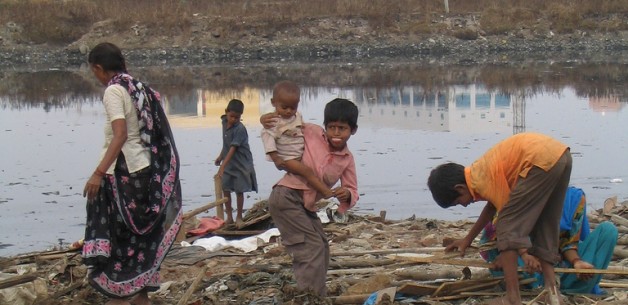The World Bank’s Mumbai Urban Transport Project (MUTP) is the subject of this case study prepared by BIC in partnership with Indian researcher, Simpreet Singh. The study looks into the impacts of MUTP on children in the surrounding communities that were displaced by the project. Singh’s research was also the subject of two articles recently published in the Indian press.
The Mumbai Urban Transport Project (MUTP) was purportedly designed to “improve the quality of life” for the people of Mumbai by “fostering the development of an efficient and sustainable urban transport system.”[1] Unfortunately, the project has had disastrous effects for many of the people—and specifically the children—in surrounding communities. Rather than improving their quality of life, many were further impoverished when they were forced to leave their homes to make way for the construction of the project. For the children in these communities, this meant years deprived of basic services that are key to their healthy development, including education, adequate nutrition, and safe spaces to play.
The devastating impacts in this case were in large part caused by a lack of attention to the needs and concerns of displaced children in the design and implementation of the resettlement component of the project. Although the World Bank ultimately suspended funding for this project and later revised its Involuntary Resettlement Policy, many of the negative impacts of the project on children—missed time in school, increased rates of disease, etc.—are irreversible and will ultimately undermine the Bank’s efforts to facilitate development in Mumbai.
Through its unprecedented safeguards review, the World Bank has an opportunity to finally address critical gaps in O.P. 4.12, as well as other relevant safeguard policies, to make their projects more responsive to the needs of children—thereby making their development efforts more effective. As long as children are overlooked by the Bank in the design and implementation of so many of its investment lending projects, its goal to end extreme poverty by 2030 will very likely never be realized.
Impacts of Urban Resettlement on Children: A Case Study on the Mumbai Urban Transport Project, funded in part by the International Development Association[1] World Bank, Project Information Document: Mumbai Urban Transport Project, p. 4 (January 16, 2002).


